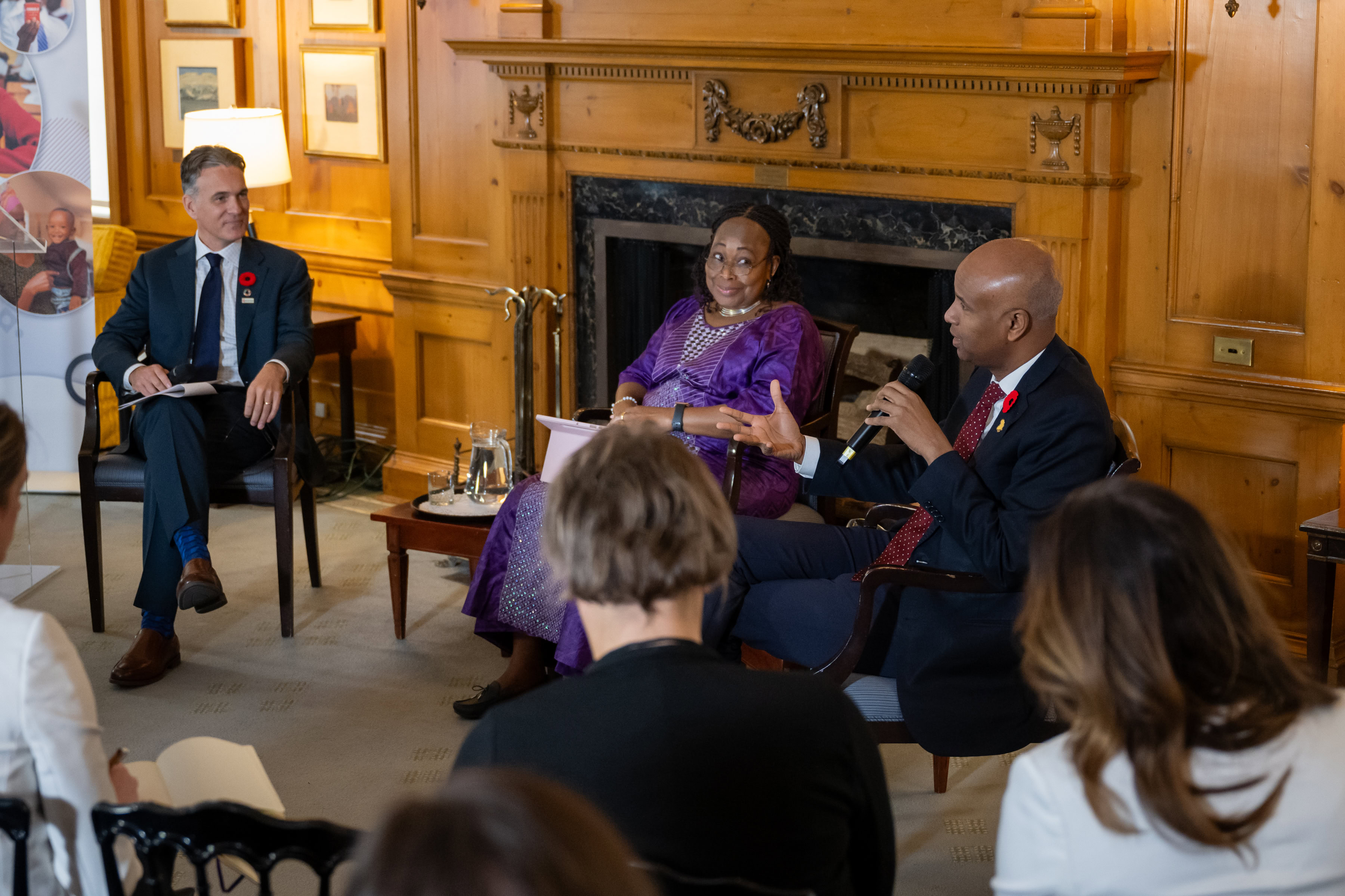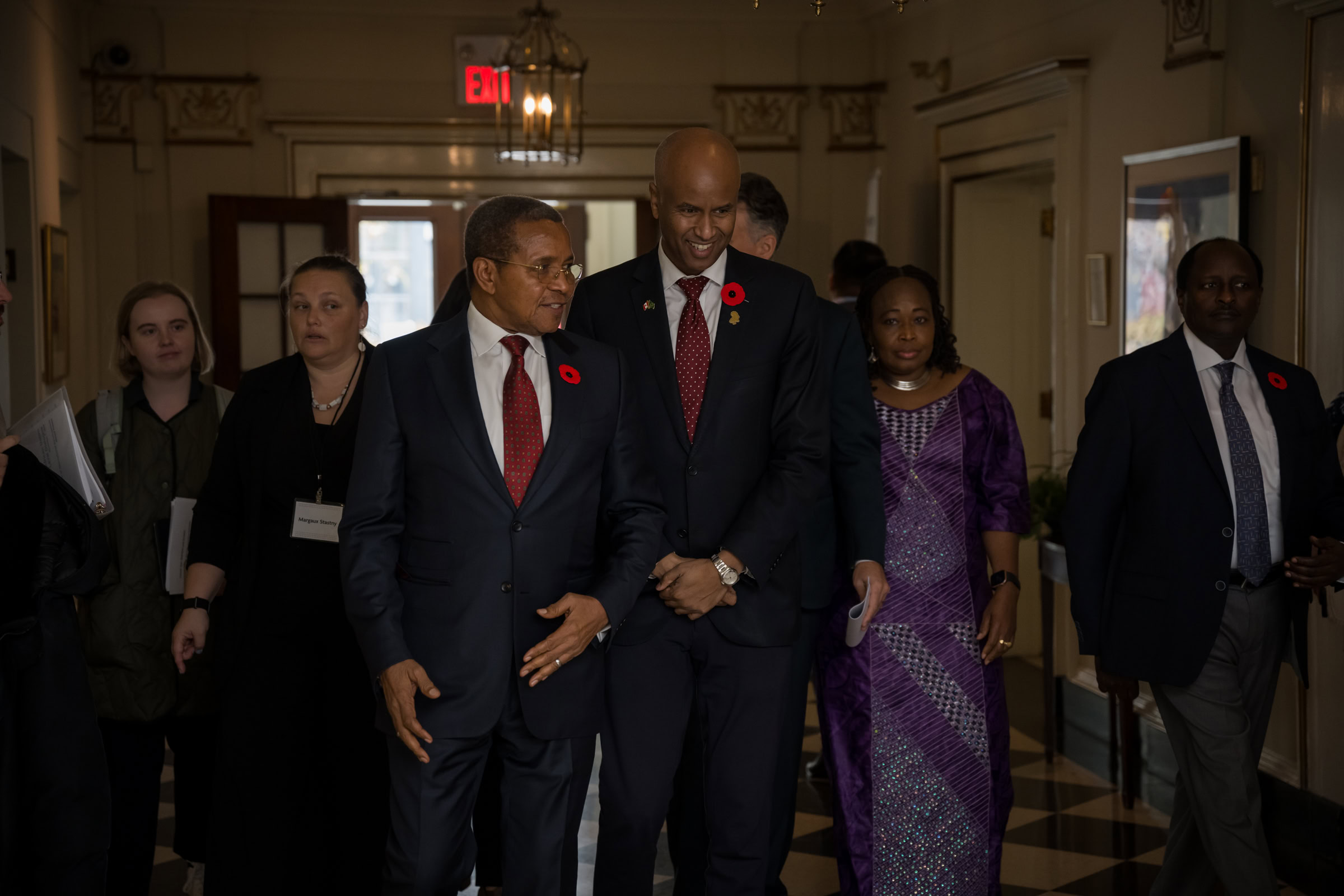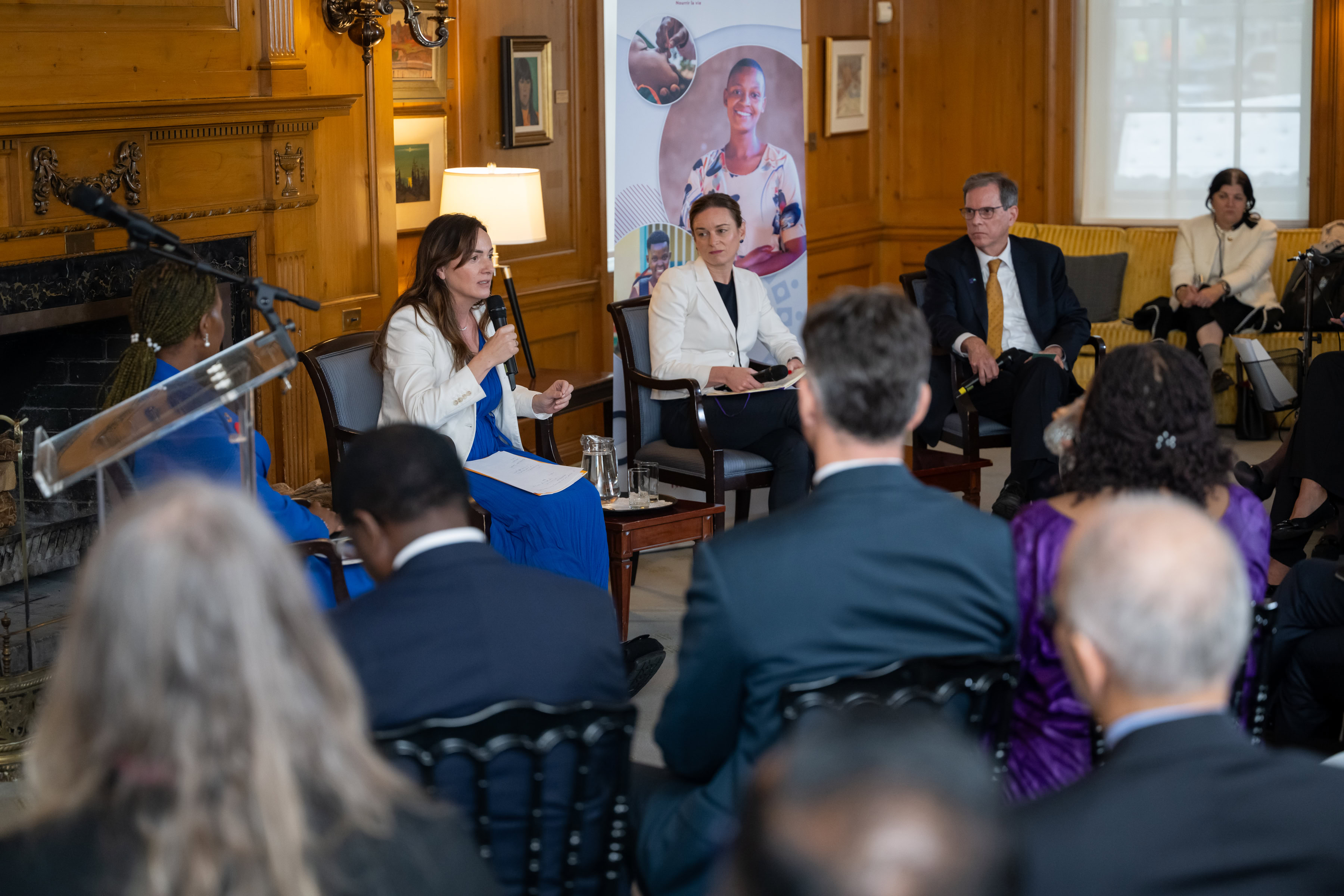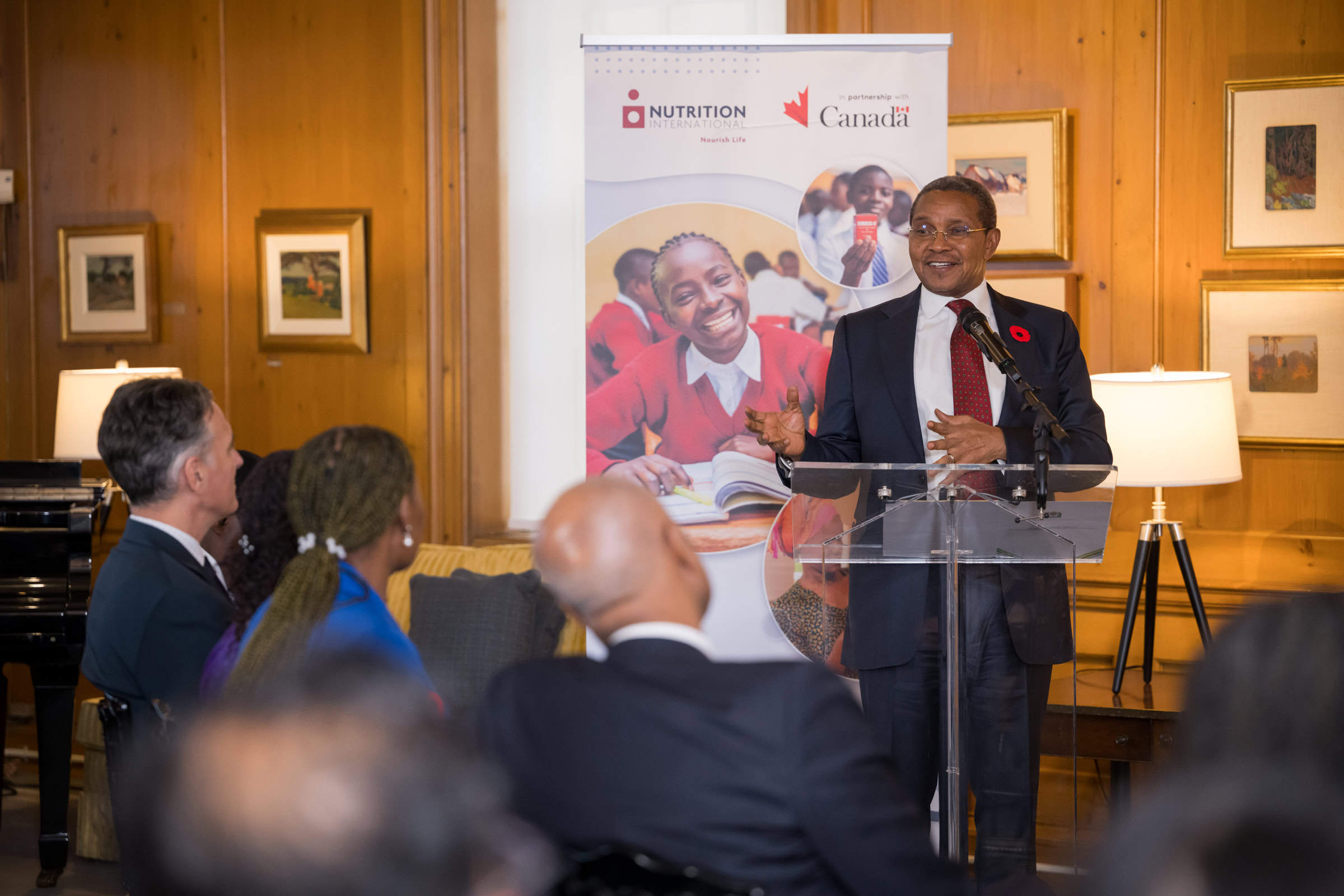News
Canada announces historic investment in the global fight against malnutrition
February 6, 2025
WP_Term Object
(
[term_id] => 48
[name] => News
[slug] => all-news
[term_group] => 0
[term_taxonomy_id] => 48
[taxonomy] => news-category
[description] => Stay up to date on our announcements, newest projects and partnerships, and news about how we’re making a difference in the lives of people around the world.
[parent] => 0
[count] => 279
[filter] => raw
)
Nutrition International highlights Canada-Africa partnership to advance nutrition, health and education goals
On the margins of Canada’s high-level dialogues with the African Union, Nutrition International convened sector leaders, philanthropists and government to identify pathways for strengthening Canada’s engagement with Africa, with a focus on leveraging its expertise in nutrition, health and education.
Posted on November 18, 2024
Toronto, CANADA – On November 8th, 2024, Nutrition International and the Government of Canada convened sector leaders, philanthropists and government representatives to explore opportunities for strengthening Canada’s growing relationship with the African continent. Held alongside Canada’s high-level dialogues with the African Union, the event celebrated Canada’s 70 years of leadership and partnership with African nations. Discussions focused on identifying ways Canada can leverage, expand and coordinate its investments across the nutrition, health and education sectors to respond with even greater impact to African priorities.
Responding to African priorities with Canadian strengths | Short cut
More than 50 attendees heard from the Honourable Ahmed Hussen, Canada’s Minister of International Development and Her Excellency Ambassador Minata Samaté Cessouma, Commissioner for Health, Humanitarian Affairs and Social Development at the African Union who spoke to their visions for Canada and the African Union’s partnership during an engaging fireside chat, moderated by Joel Spicer, President and CEO of Nutrition International.

“We wanted to demonstrate that for Canada, our relationship with Africa is about tackling the challenges that the African Union has articulatd through Agenda 2063.
— Honourable Ahmed Hussen, Canadian Minister for International Development
“We wanted to demonstrate very clearly to the African Union Commission that for Canada, our relationship with Africa is about win-win trade and investment,” said Minister Hussen. “It’s about unlocking the drivers of inclusive economic growth and tackling the challenges that the African Union has articulated through Agenda 2063 and using Canadian international development resources to partner with that.”
Africa is facing a range of complex challenges, including conflict, climate change and rising debt levels. At the same time, it is home to the largest demographic of young people in history, with 40% of the population under the age of 15 and an additional 100 million children expected to be born by 2050. This growing youth population holds the power to drive political agendas, influence governance and address global challenges. Supporting their successful transition to adulthood will be pivotal in helping African countries break intergenerational cycles of poverty and violence, paving the way for sustained prosperity across the continent.

The nutrition and education sectors are key to maximizing Africa’s potential and align with both Canada’s established areas of expertise and the priorities set by African leaders. Data from Nutrition International’s Cost of Inaction Tool shows that each year, stunting across Africa leads to a loss of 127M IQ points, 20M school years lost and costs at least $129B annually in lost productivity. Additionally, an estimated 60M adolescent girls across the continent are impacted by anaemia, which hinders their learning and threatens their academic performance.
“Education is not only a fundamental human right, but also the key to unlocking Africa’s full potential.
— His Excellency, Dr. Jakaya Kikwete, former President of Tanzania, Nutrition International board member and Chair of the Board for the Global Partnership for Education
Good nutrition is essential for cognitive development and sustained cognitive and physiological learning capacity, which impacts school performance, improves lifetime earnings and productivity.
Following the fireside chat, Canadian civil society leaders, including Julia Anderson, CEO of CanWaCH, Kate Higgins, CEO of Cooperation Canada and Charles North, Deputy Executive Director at the Global Partnership for Education participated in a townhall panel where they shared their views on Canada’s new approach to engaging Africa.

The event concluded with remarks from His Excellency, Dr. Jakaya Kikwete, former President of Tanzania, Nutrition International board member and Chair of the Board for the Global Partnership for Education, who underscored the important role that Canada has played – and must continue to play – in advancing health, education and nutrition in Africa.
“Education is not only a fundamental human right, but also the key to unlocking Africa’s full potential,” he said. “We need education systems that can prepare young people for the future. We need education systems that can empower the next generation of Africans to lead us towards a more positive future. We need to make sure our children are able and ready for school.”

Through strategic investments at the state and regional levels, alongside its support to Nutrition International, Canada has remained at the forefront of the fight against malnutrition, helping governments provide the right nutrition at the right time to women, children and adolescents setting key priorities and objectives for the next decade, there is the opportunity to forge a partnership of equals that harnesses both Canada and Africa’s respective strengths. Together, by developing innovating solutions to tackle the continent’s most pressing development challenges, Canada and Africa can break down entrenched sector siloes and chart a course for a world in which every child is equipped to learn, earn and lead.
View the full event below:
Unpacking Canada’s engagement with Africa: Responding to African priorities with Canadian strengths